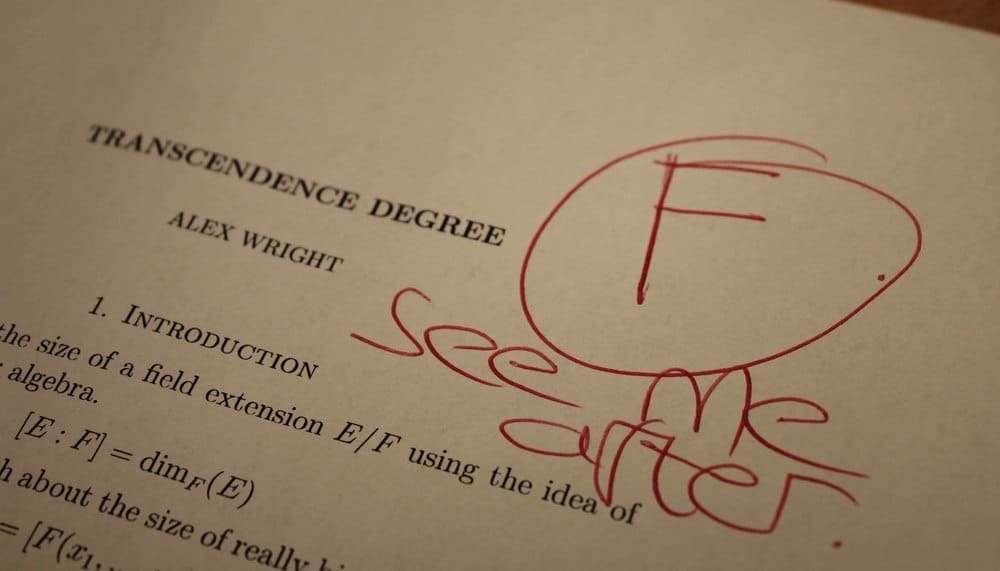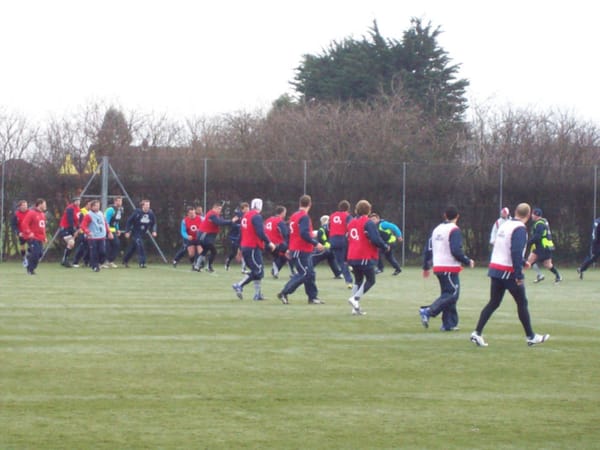The Tale of the Demonstrator
Pietro Aronica gives a – mostly fictional – parody of the precise and hallowed science of marking lab reports

The demonstrator, working late at night, still has a stack of papers to correct for the following day. Though the bed beckons to him, he relentlessly keeps going, as students require his slightly-above-minimum wage insights and comments: without his feedback, they would have literally no other way to improve their marks. Or so he tells himself, correcting for the umpteenth time that night that the plural of “momentum” is not “momentums”.
He picks up his reference text to check if a value is the right one: not the official answer outline, dated and imprecise, but the report of a particularly brilliant student. It has equations and sources that the demonstrator does not even know of, and someone writing such things clearly knows what they’re doing. He had felt compelled to give itthe maximum marks, sincerely hoping that he hadn’t rewarded plagiarism.
In comparing the two reports, he goes down the mandatory checklist. Background theory? Convoluted, but check. Figure explaining that one effect? Check. Equation for said effect? Check. Description of the experiment? Incomplete, but check. Discussion of the experiment? It’s wrong, but, hey, at least it’s there. The result is one of those reports clearly slapped together two hours before the deadline, competent enough to show that the work was (somewhat) done and understood, and transparent in its I-just-did-this-because-I-had-to spirit. This kind of report can get more or less any mark, depending on how anal you want to be about the precise usage of commas and subscripts, far beyond the demonstrator’s willingness to judge. He picks up a book, flicks to a random page and reads the first number he sees: it is odd. B it is then for this report. He pens a 64 at the bottom, and another one is done.
He picks up a book, flicks to a random page and reads the first number he sees: it is odd. B it is then for this report
The next report appears to be marginally more competently written. There are definitely a lot fewer typos, and there is at least a rudimentary notion of how a table should be made. But before he can correct it, the demonstrator has to perform a fundamental step: he searches her name on Facebook. He remembers her from the lab, she was the one that had asked him that question he couldn’t answer. Well, this’ll teach you to shame me in front of everyone! He scours the report, finds a number with only three significant figures, and writes “insufficient precision” in the comments section. He gives it 55, a minute later amended to 60 because he feels guilty, and he goes on to the next one.
This reports starts awfully, with a terrible, rambling introduction, and for a moment the demonstrator gets excited. His enthusiasm rises through blurry images and poorly formatted paragraphs, but unfortunately the discussion of the experiment is impeccable, and he cannot give it any less than a B. Just once, the demonstrator wishes there were a truly disastrous report so that he could take out his red pen and write a big F on it. “See me”, he could even write. But there was no report that ever really deserved that, and even those with obvious flaws had some redeeming feature. Reluctantly, he gives it a 69, giggles to himself, and then puts it away.
He takes another one, and it is a good one: correct use of references, proper discussion and interpretation and all the rest. Unfortunately for the student, the demonstrator has run out of As to give today. He wouldn’t want to seem too generous, especially when theother demonstrators are boasting about failing people left and right, and he has instituted a quota. He feels sorry for the kid, especially as he’s recognised him as one of the quiet ones, but going back to change the other marks would be entirely too much effort. He gives it a 68 before taking another report.
The pile is still large, and the hour is only getting later. It is hard to be a demonstrator.
This is (mostly) a work of fiction. No grade averages were harmed in the making of this.






